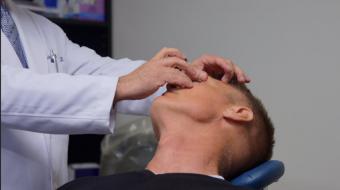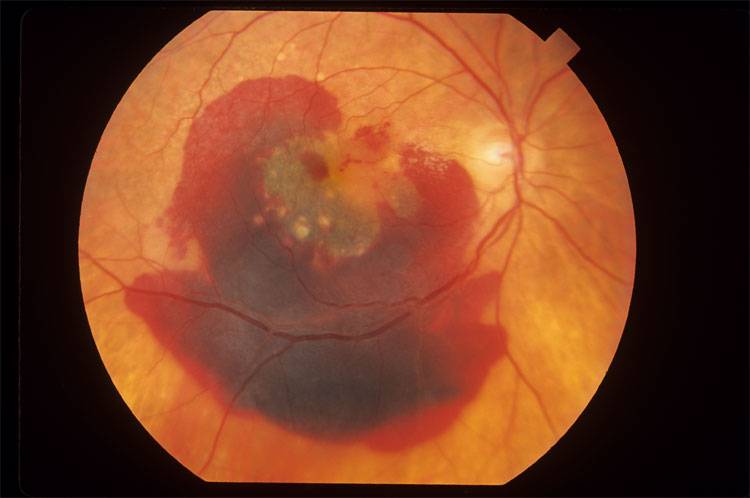Eye Conditions - Ophthalmologist
Knowledge is Power.
True/False - Quiz: Do You Understand Eye Conditions - Ophthalmologist?
Information - Eye Conditions - Ophthalmologist
 An ophthalmologist is a medical doctor who diagnoses and treats eye diseases and performs eye surgery. An ophthalmologist has completed college and at least eight years of additional medical training. An optometrist provides primary vision care for people of all ages - from performing eye exams to diagnosing eye disease. An optometrist completes three or more years of college or university followed by four years of optometry school. Optometrists and ophthalmologists often provide similar primary vision care services.
An ophthalmologist is a medical doctor who diagnoses and treats eye diseases and performs eye surgery. An ophthalmologist has completed college and at least eight years of additional medical training. An optometrist provides primary vision care for people of all ages - from performing eye exams to diagnosing eye disease. An optometrist completes three or more years of college or university followed by four years of optometry school. Optometrists and ophthalmologists often provide similar primary vision care services.
Types of Eye Diseases Ophthalmologists Treat
• Amblyopia: Also known as lazy eye, this vision development disorder usually affects only one eye.
• Cataracts: A cataract is a clouding of the lens of the eye. Cataracts usually develop slowly, causing a painless and gradual decrease in vision as the lens of the eye prevents light rays from properly passing through.
• Conjunctivitis: Conjunctivitis, also known as pinkeye, is an inflammation of the the thin clear tissue that lies over the white part of the eye called the conjunctiva.
• Diabetic retinopathy: Also called diabetic eye disease, this diabetes-related complication damages the blood vessels of the tissue at the back of the retina.
• Dry eye: This condition occurs when a person doesn't have enough quality tears to lubricate the eye.
• Eye cancer: Cancer can develop inside the eyeball (intraocular cancer) or spread to the eye from other parts of the body.
• Glaucoma: Glaucoma is an eye disease caused by a buildup of intraocular pressure (IOP). Your eyes have clear liquid that flows in and out, but if you have glaucoma, this liquid doesn’t drain properly, causing this buildup of IOP pressure.
• Macular degeneration: Age-related macular degeneration (AMD) is an extremely common eye condition. As the leading cause of severe vision loss in people over 65, it can affect near and distance vision.
• Refractive errors such as myopia, hyperopia, presbyopia and astigmatism
 Symptoms & Treatment of Eye Diseases
Symptoms & Treatment of Eye Diseases
There are certain symptoms you should see an ophthalmologist for:
• Sudden changes in vision such as spots, shadows, flashes, distortions or wavy lines, double vision or blurry faces
• Loss of vision or decreased vision
• Changes in colour vision
• Redness, swelling or discharge
Treatment will depend on the type and severity of eye condition you have. Your ophthalmologist will be able to help you with diagnosis, treatment, follow-up and management of your eye condition.
Talk to your family physician if you'd like more information on eye conditions.
Visit HealthChoicesFirst.com for more videos and resources on family health.
Print this Action Plan and check off items that you want to discuss with your healthcare provider
-
A cataract is a clouding of the lens of the eye. Cataracts usually develop slowly, causing a painless and gradual decrease in vision as the lens of the eye prevents light rays from properly passing through.
-
Diabetic retinopathy, also called diabetic eye disease, damages the blood vessels of the tissue at the back of the retina.
-
Glaucoma is an eye disease caused by a buildup of intraocular pressure (IOP). Your eyes have clear liquid that flows in and out, but if you have glaucoma, this liquid doesn’t drain properly, causing this buildup of IOP pressure.
-
See an ophthalmologist if you experience sudden changes in vision such as spots, shadows, flashes, distortions or wavy lines; double vision or blurry faces; loss of vision or decreased vision; changes in colour vision or redness, swelling or discharge.
-
Treatment will depend on the type and severity of eye condition you have. Your ophthalmologist will be able to help you with diagnosis, treatment, follow-up and management of your eye condition.



